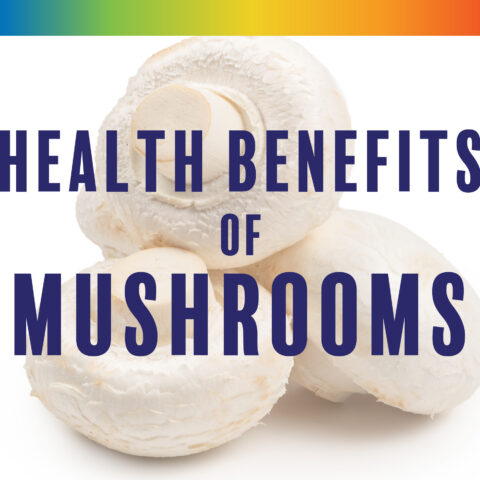How Late-Night Eating Affects Your Circadian Rhythm

Renowned evolutionary biologist Theodosius Dobzhansky said “nothing in biology makes sense except in the light of evolution.”[1] Throughout our evolution, we have lived in daily cycles of light and dark. These cycles have led to the development of natural circadian rhythms that impact many aspects of our health and vitality.
Circadian rhythms are triggered by the bright light stimulus in the morning and darkness in the evening. The hypothalamus area of the brain – specifically the suprachiasmatic nucleus (SCN) – is the master regulator, synchronising the body’s circadian clock based on information it receives from photoreceptors in the eyes in response to light [2]. The impacts of circadian rhythm are wide-reaching;
Disruption of the circadian clock can have a big impact on the body’s ability to function optimally. Jet lag – that feeling of fatigue, disorientation and mental sluggishness after travelling through multiple time zones – is a classic example [3-6]
Unfortunately, the negative effects can be more serious than just a little sluggishness. The incidence of workplace injuries and traffic accidents increases when the clocks move forward in the spring [7, 8].
Experts are just starting to uncover the many potential ripple effects of circadian dysfunction on our health: from heart disease [9, 10] and cognitive decline [11, 12], to blood sugar dysfunction and increased diabetes risk [13]; to changes in body-fat storage and breakdown [14-16], reduced liver, pancreatic, and cardiac and skeletal muscle function [17-25].
How Late-Night Eating Affects Your Body
Today, there are many ancestral circadian mismatches with modern life. Late-night eating may be one of the most glaring incongruous elements. We’re in the midst of a weight gain and obesity epidemic with 70% of adults over the age of 20 in America are overweight or obese and 50% of the population now classified as pre-diabetic or diabetic.[26-27] A body of research is appearing showing that late-night eating may be a significant contributor [27-29].
A 2014 study of overweight and obese diabetics investigated the impacts of a late-night snack on their requirement for supplemental insulin. Subjects were divided into carbohydrate, whey protein, casein, or placebo groups. All groups required significantly more insulin after all late-night snacks, though the protein snack did compare more favourably to the carbohydrate snack [30]. These results confirmed a 2003 study on late-night eating and diabetics. This earlier study showed consistently higher blood sugar levels when snacking late at night, regardless of the macronutrient composition of the meal [31].
Why is late-night eating potentially so bad for us? One possible explanation is our circadian rhythms may prevent us from effectively managing food eaten later at night. There is evidence showing the thermic effect of food is reduced in the evening, due to the circadian regulation of insulin sensitivity, meaning your blood sugar and insulin response to carbs at night is more exaggerated than during the day [32].
Solutions for A Modern Circadian Mismatch
Our Paleolithic ancestors would’ve rarely (if ever) eaten after dark. Yet in today’s modern world, the light emitted from iPads, laptops, TVs and mobile devices make it far easier to stay up later at night. This presents a circadian mismatch to our evolutionary biological clocks which translates into more opportunity (and likelihood) to eat. If you’re struggling with weight gain, chronically high blood sugar, pre-diabetes or diabetes then shifting your focus to “meal-timing” can be a simple and highly effective part of the solution to improving your health.
To support a healthy circadian clock, implement the following “meal-timing” strategy:
- Avoid eating late at night – consider abstaining from all food after 6:00 or 7:00 pm or ditch your late-night snacking while on the couch and try sipping on a herbal tea instead
- Go for an evening walk, do some light stretching, or take a relaxing bath.
In my experience as a clinician, I see major progress in clients who decide to abstain from food in the evening. Once they get through the first few nights, the cravings plummet and it becomes much easier to ingrain the new habit.
Supporting your circadian clock with meal-timing strategies can be an “easy win” to restoring health and vitality [33]. It’s simple and highly effective.
References
1. Gerhart-Hines, Z. and M.A. Lazar, Circadian metabolism in the light of evolution. Endocr Rev, 2015. 36(3): p. 289-304.
2. Guler, A.D., et al., Melanopsin cells are the principal conduits for rod-cone input to non-image-forming vision. Nature, 2008. 453(7191): p. 102-5.
3. Tapp, W.N. and B.H. Natelson, Circadian rhythms and patterns of performance before and after simulated jet lag. Am J Physiol, 1989. 257(4 Pt 2): p. R796-803.
4. Leloup, J.C. and A. Goldbeter, Critical phase shifts slow down circadian clock recovery: implications for jet lag. J Theor Biol, 2013. 333: p. 47-57.
5. Comperatore, C.A. and G.P. Krueger, Circadian rhythm desynchronosis, jet lag, shift lag, and coping strategies. Occup Med, 1990. 5(2): p. 323-41.
6. Vosko, A.M., C.S. Colwell, and A.Y. Avidan, Jet lag syndrome: circadian organization, pathophysiology, and management strategies. Nat Sci Sleep, 2010. 2: p. 187-98.
7. Coren, S., Daylight savings time and traffic accidents. N Engl J Med, 1996. 334(14): p. 924.
8. Varughese, J. and R.P. Allen, Fatal accidents following changes in daylight savings time: the American experience. Sleep Medicine, 2001. 2(1): p. 31-36.
9. Maemura, K., [Circadian rhythm and ischemic heart disease]. Nihon Rinsho, 2013. 71(12): p. 2124-9.
10. Marchant, B., Circadian rhythms and ischaemic heart disease. Br J Hosp Med, 1996. 55(3): p. 139-43.
11. Gehrman, P., et al., The relationship between dementia severity and rest/activity circadian rhythms. Neuropsychiatr Dis Treat, 2005. 1(2): p. 155-63.
12. Ancoli-Israel, S., et al., Variations in circadian rhythms of activity, sleep, and light exposure related to dementia in nursing-home patients. Sleep, 1997. 20(1): p. 18-23.
13. Afsar, B., Disruption of circadian blood pressure, heart rate and the impact on glycemic control in type 1 diabetes. Diabetes Metab Syndr, 2015. 9(4): p. 359-63.
14. Cincotta, A.H., et al., Circadian neuroendocrine role in age-related changes in body fat stores and insulin sensitivity of the male Sprague-Dawley rat. Chronobiol Int, 1993. 10(4): p. 244-58.
15. Wang, L. and S. Liangpunsakul, Circadian clock control of hepatic lipid metabolism: role of small heterodimer partner (Shp). J Investig Med, 2016. 64(7): p. 1158-61.
16. Gnocchi, D., et al., Lipids around the Clock: Focus on Circadian Rhythms and Lipid Metabolism. Biology (Basel), 2015. 4(1): p. 104-32.
17. Gerhart Hines, Z., et al., The nuclear receptor Rev-erbα controls circadian thermogenic plasticity. Nature, 2013. 503(7476): p. 410-413.
18. Bookout, A.L., et al., FGF21 regulates metabolism and circadian behavior by acting on the nervous system. Nat Med, 2013. 19(9): p. 1147-52.
19. Shostak, A., J. Meyer-Kovac, and H. Oster, Circadian regulation of lipid mobilization in white adipose tissues. Diabetes, 2013. 62(7): p. 2195-203.
20. Boden, G., et al., Evidence for a circadian rhythm of insulin secretion. Am J Physiol, 1996. 271(2 Pt 1): p. E246-52.
21. Degaute, J.P., et al., Quantitative analysis of the 24-hour blood pressure and heart rate patterns in young men. Hypertension, 1991. 18(2): p. 199-210.
22. Zambon, A.C., et al., Time- and exercise-dependent gene regulation in human skeletal muscle. Genome Biol, 2003. 4(10): p. R61.
23. Carter, R., et al., Non-alcoholic fatty pancreas disease pathogenesis: a role for developmental programming and altered circadian rhythms. PLoS One, 2014. 9(3): p. e89505.
24. Kettner, N.M., et al., Circadian Homeostasis of Liver Metabolism Suppresses Hepatocarcinogenesis. Cancer Cell, 2016. 30(6): p. 909-924.
25. Zhou, D., et al., Evolving roles of circadian rhythms in liver homeostasis and pathology. Oncotarget, 2016. 7(8): p. 8625-39.
26. CDC: Center for Disease Control & Prevention. Retrieved from – https://www.cdc.gov/nchs/fastats/obesity-overweight.htm
27. Menke, A., et al., Prevalence of and Trends in Diabetes Among Adults in the United States, 1988-2012. JAMA, 2015. 314(10): p. 1021-9.
28. Cleator, J., et al., Night eating syndrome: implications for severe obesity. Nutr Diabetes, 2012. 2: p. e44.
29. Gallant, A.R., J. Lundgren, and V. Drapeau, The night-eating syndrome and obesity. Obes Rev, 2012. 13(6): p. 528-36.
30. Colles, S.L., J.B. Dixon, and P.E. O’Brien, Night eating syndrome and nocturnal snacking: association with obesity, binge eating and psychological distress. International Journal of Obesity, 2007. 31(11): p. 1722-1730.
31. Kinsey, A.W., et al., Influence of night-time protein and carbohydrate intake on appetite and cardiometabolic risk in sedentary overweight and obese women. Br J Nutr, 2014. 112(3): p. 320-7.
32. Kalergis, M., et al., Impact of bedtime snack composition on prevention of nocturnal hypoglycemia in adults with type 1 diabetes undergoing intensive insulin management using lispro insulin before meals: a randomized, placebo-controlled, crossover trial. Diabetes Care, 2003. 26(1): p. 9-15.
33. Bo, S., et al., Is the timing of caloric intake associated with variation in diet-induced thermogenesis and in the metabolic pattern? A randomized cross-over study. Int J Obes (Lond), 2015. 39(12): p. 1689-95.
34. Mattson, M.P., et al., Meal frequency and timing in health and disease. Proc Natl Acad Sci U S A, 2014. 111(47): p. 16647-53.




